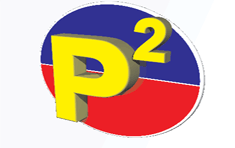Stranks Speaks to the Westminster Media Forum
Posted by admin on June 10, 2014 · Leave a Comment
Westminster Media Forum Keynote Seminar. The future of children’s media – multi-platform delivery, public service broadcasting and economics 1st May 2014.
Children’s programming and public service broadcasting Susan Stranks, Director, Abracadabra Radio and Coordinator, National Campaign for Children’s Radio.
Sound track – Joseph, aged four, sings’ Twinkle, Twinkle Little Star’
Nursery rhymes teach us to sing, rhyme and use our imagination They improve our vocabulary and counting skills and teach spatial concepts like up/down; in/out; over/under; right/left, round and round the garden – and so much more.
But many parents today, including those learning English as an additional language, don’t know our traditional nursery rhymes. Teachers are concerned that increasing numbers of children join reception class without the listening and talking skills to express their needs or understand what is asked of them. Many young offenders have such poor communication skills that they are unable to take advantage of the education offered to them in prison.
Radio can help!
In particular, Public Service radio made for UK children. But this vital component of our culture was finally killed off in February 2011 when, as guardian and sole provider, the BBC, published its new Strategy for Children’s Audio … note ‘audio’ not ‘radio’.
Abolition of this core public service was argued on three counts:
1. that today’s children prefer to access their audio via computer and other personal devices.
True, children may like their audio via personal devices but so too do adults, who can also enjoy they
programmes delivered on traditional radio, which offers more consistent quality.
2. that for years the BBC had failed to attract children via a succession adult-speech networks.
True children were not attracted by content hidden on adult speech networks, which tend to be middle-aged and middle class and often include very distressing news.
3. that today’s children may no longer be able to listen without visual stimulation.
The BBC seems oblivious of any blame were this dreadful surmise to be true. It had the funds, expertise and duty to deliver the life-long joy of radio to our children but has consistently failed to do so.
So 75% of children’s miniscule radio time was axed and 50% of their meagre budget passed to adults. The cuts were immediate and compared most unfairly with the 16% average savings across all BBC departments … amortised over five years.
All radio for the under-fives was banished to daily internet downloads averaging 12mins duration. Parents complained this needed extra kit, technical knowhow and adult supervision compared to a pre-set pushbutton DAB radio, that even a toddler could turn on. Indeed some had bought sets especially for BBC children’s content.
The scant remains for listeners aged six to 14 were rebranded ‘family content’ and re-scheduled as ‘The 4O’Clock Show’ on adult speech network R4 Extra. Amazingly, this network is also licensed as the home of horror, sci-fi and adult stand-up comedy – creating a scheduling nightmare.
Radio has no watershed, and concerns were logged about content containing offensive and racist language; sexual and violent scenes, including murder, suicide and the occult, at times children may be listening. In response the BBC Complaints Department confirms that R4Extra is an adult network carrying some unsuitable content and advises parental supervision.
So busy parents are expected to police a network officially licensed for ‘family listening’ or restrict their kids to The 4O’Clock Show – making radio a place of conflict rather than a shared family experience.
‘The 4O’Clock Show’ airs from 4 to 5pm on weekdays with a repeat of ‘Best Bits’ on Sunday. It consists of clips gleaned from R4, World Service and other adult networks linked by occasional quiz and science series and a 10 minute serialised children’s story ends the hour. Some 500 Words stories from the Hay on Wye Festival feature annually – due on air soon. On Saturdays – weekend family time – this slot is usurped by sometimes very adult plays.
An hour of family drama, plus an afternoon repeat, airs on Sundays. Last Sunday this included ‘The Three Musketeers’ and ‘Oliver Twist’, enthusiastically introduced, alongside a plug for ‘The Price of Fear’ at 6pm – the designated Horror Hour. As I say … a scheduling nightmare!
Initially, BBC savings proposed axing R6 and also the Asian Network – the most costly radio format per listener hour. A number of Asians find the segregated listening rather patronising and old fashioned but a proposal to adjust the Service Licence to serve all families, including Asians, failed, and both networks were reprieved.
Of £640.1m the BBC spends on domestic radio services less that £1m now goes on content for children aged birth to 14, who are over 17% of the population. We have yet to learn the structure of BBC funding for Charter 2017 but an annual cost of a penny a week per child yields £5.7million per annum – enough for one, even two, dedicated age-appropriate radio networks with substantial internet support – drawing on BBC and independent talent.
I challenge you to find a more accessible, effective and efficient focus for public funds.
Addendum – Response to Questions from the floor.
“In mitigation of the cuts the BBC pledged to release children’s radio archive to interested third parties, including commercial station FUNKids, , community network, Takeover Radio and our non-profit abracaDABra! Due to a maze of copyright problems [and in spite of strenuous efforts by Jo Godwin] over three years later we’ve only succeeded in acquiring use of 26 CBeebies stories.”
Population Projection 2015.
Ages attained (years)Population % of total
0–4 3,914,000 6.2
5–9 3,517,000 5.6
10–14 3,670,000 5.8
1p a week per child yields £5.72 million per annum.
S.S. 01/05/2014.



